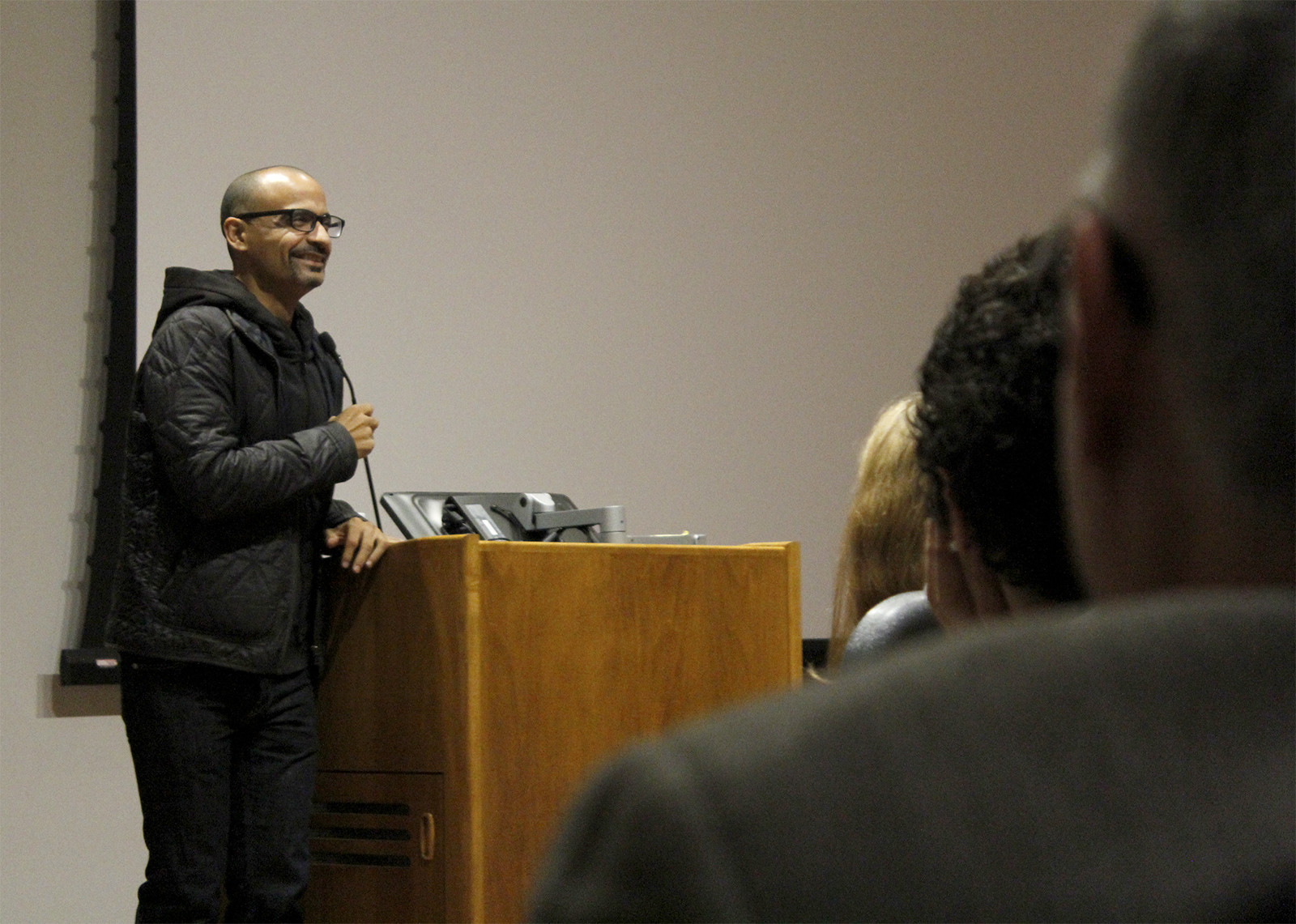
Pulitzer Prize-winning author and poet Junot Díaz conveyed his progressive opinions on love, privilege, immigration and repression Monday night at a talk and book signing at Boston University.
More than 400 students and Boston-area residents attended Díaz’s appearance in the BU Law Auditorium, which was part of the Ha Jin Visiting Lecture Series.
“Even if it’s not entirely voluntary, we can extract some good out of this,” Díaz said in regard to students who might have been mandated to attend the lecture for a class. “There’s always worse kinds of suasion than making young people spend time with an artist, so I think we’ll make this work one way or another.”
Before beginning his talk and answering questions, Díaz engaged the audience by asking who identified with backgrounds similar to his. When several audience members were reluctant to identify as immigrants, Díaz joked, “You worried? Trump got you worried? White supremacy got you real worried.”
Many of Díaz’s books and short stories, including “The Brief Wondrous Life of Oscar Wao” and “This Is How You Lose Her,” focus on the themes of love, race and identity.
“Love is just a cheap easy tactic to get at the human condition,” he said. “Love reveals us. I love how we talk about the people we’re dating when we like them. And I love how we talk about the people we’re dating when we f—ing dump them, and I love how we talk about them a few years later when we’re dating someone else.”
In addition to answering audience questions, Díaz also read an excerpt from a short story out of his latest collection, 2013’s “This Is How You Lose Her.”
The way characters love each other in Díaz’s novels is contradictory to the way people of color are historically taught to love, he said.
“I’m a person who grew up [a] Dominican kid, immigrant kid, in a society that told me that people of color were hideous just to begin with, that the most beautiful thing on the Earth was white people … that is the tutorial of living in America,” Díaz said. “There’s so little space for us to talk about loving ourselves.”
Díaz also addressed the current state of affairs at the border of the Dominican Republican and Haiti, in which the Dominican government is allegedly mistreating and deporting Haitian immigrants en masse. Just this week, the Dominican government stripped Díaz of his Order of Merit medal, which it awarded him in 2009, for speaking out against the “human rights crisis,” calling him anti-Dominican.
“This should not be unfamiliar to you,” he said, addressing the more local angle of the conflict. “There’s nothing going on in the Dominican Republic in some ways that doesn’t directly relate to our reality here. We have elites that love to deploy the hobgoblin of immigration, the hobgoblin of blackness, to create formulas that deny immigrants and people of African descent humanity.”
Several people who attended Díaz’s lecture found his outlook and thought process interesting and provoking.
“I read his work and it was just amazing at how creative it was,” said Carolyn Connolly, 67, of Needham. “He’s a great speaker, I didn’t expect him to be that good of a speaker … He’s extremely articulate, it just feels like when he writes it probably just flows, he probably doesn’t have to do a lot of rewriting.”
Ramiro Flores, a freshman at Lesley University, said he originally tagged along with a friend to the event and had not read any of Díaz’s books, but plans to now.
“I like his way of thinking, how he looks at the world,” Flores said. “The story he read too, I like that it was kind of shocking. They’re very cutthroat, and not as sensitive as other stories. I like how he kept touching on the idea of formulas and how they’ve been integrated into society and how they influence diasporas, communities and people of color.
Andi Brown, 64, of Brookline, said she appreciates how clever and inventive Diaz is in his writing.
“I try my hand at writing fiction, so I always try to take advantage of any opportunity to hear a master practitioner of the craft and to try and learn from what they have to say and what they share,” she said, “and I think he did a great job of imparting some writerly craft to his audience.”




